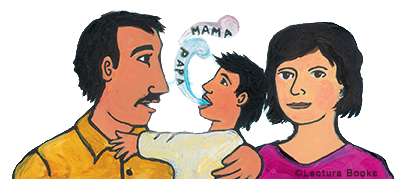Dual Language and the Impact on the Brain
There are some interesting contradictions regarding dual language and the impact on the brain. One, for instance, about babies, is that growing up in a bilingual home is confusing for them. Sometimes families are also told that speaking their native language slows down the rate at which babies learn the dominant language.
There just isn’t enough evidence, however, proving language confusion or delays. In fact, researchers have found the opposite is true.

Bilingual Language Development – Good for the Brain!
According to Live Science, rather than causing challenges, learning two languages simultaneously actually gives babies a cognitive advantage, including having special visual and auditory sensitivities. For example, experts have found a sensitivity in bilingual babies where when watching muted videos of one person speaking can discern which language is being spoken, it said.
Live Science also states that around seven months, bilingual babies have a higher learning capacity than monolinguals. For instance, when a baby is shown to turn its head one way that often the bilingual baby not only does that but extends it by turning his or head in the opposite direction. At 12 months, studies show they’re better able to learn two sets of rules as well. This suggests the flexibility that bilingual babies may have over one language babies.
Another science site, Science Mag states that different languages place different emphasis on actions and consequences. For instance, if you ask “where’s the robber?” You may get more accuracy if you ask it in German. But, when you ask, “how did she get away?” You may want to switch to English as it could be more accurate. As a result, bilinguals may be getting the best of both worldviews, it added. Brain Research says that bilinguals may be using language ability to its full potential while monolinguals to a more limited extent.
Research verifies the importance of nurturing both languages. As such, finding educational programs that support ELL students’ first language, such as The Latino Family Literacy Project, can also make an enormous difference on their overall academic and language acquisition success.
